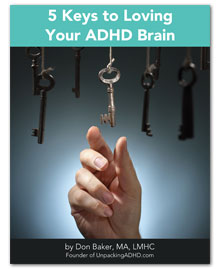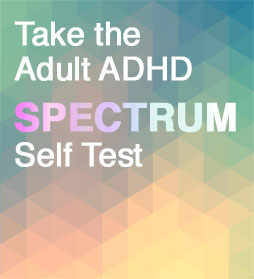This is a guest post written by Alan Simons, ARNP, a psychiatric nurse practitioner helping adults with ADHD, depression, anxiety and/or bipolar disorder through medications, skill building and therapy. Alan practices in Bellevue, Washington and can be contacted through his website http://www.alansimons.com
Not getting the best results from your medications? Here’s something worth checking out!
With a simple test we can now get information that may help you avoid medication side effects or help your medications work better. The stories of Jennifer, Brad, and Georgie explain how this works.
Jennifer, a 27 year-old administrator working for the state in a high-pressure department, benefited from such a test. Stressed and depressed with personal as well as work problems, she first came to my office already taking a popular anti-depressant/anti-anxiety medication. She had tried two others without success before settling on her current one.
Her concern was that her current medication was not working as well as it used to. She was feeling more depressed and anxious. Her focus was increasingly more scattered and her follow-through poorer–all of which aggravated her problems both at work and with her relationship.
Given her history and current situation, I thought psychotherapy could be her best treatment, if she could tear herself away from her overly busy schedule. However, she hesitated to make the time.
I also wanted to make sure that there wasn’t some other biological factor contributing to her problems. She agreed to get a cheek-swab-based genetic test at the office. The test could potentially tell us if she had genetic variations that caused a problem with how 1) her liver was processing her medications and/or 2) her body used a simple B vitamin that could be sabotaging the best efforts of her medications.
Jennifer’s test showed that her liver was processing her medications as we would expect. On the other hand, she had a severe variation in the gene responsible for processing the B vitamin folate (also called folic acid or vitamin B9).
Only 7-10% of Jennifer’s folate or folic acid was being converted into the form the brain could use, l-methylfolate. This poor conversion rate can lead to an increased risk in depression, anxiety, ADHD, memory impairment, and other problems.
Unfortunately, just taking 10 times the normal folic acid dose in a supplement won’t work. That could increase your risk for cancer (apparently from all that unmetabolized folic acid).
Bad news but good information. Good because we can actually do something about it.
And we did. Jennifer started taking the supplement l-methylfolate daily in addition to her antidepressant/anti-anxiety medication, bypassing the folic acid to l-methylfolate problem. Within a month Jennifer reported that her mood had lifted significantly, she felt less anxious and had better focus and follow-through, despite having even greater problems with her husband. Later after blending a little psychotherapy with her medication management sessions, even her relationship improved.
With Brad, a 31-year-old IT professional with ADHD, depression and anxiety, we were able to use a second feature of the genetic test. Before the test, it looked like we might have to increase either his antidepressant/anti-anxiety or stimulant medication dosage because he was more anxious and scattered.
The test showed that his liver was genetically a poor metabolizer of his antidepressant/anti-anxiety medication. As a result, the level of his medication was higher than you would expect given the dose. There was too much getting to his brain, leaving Brad with greater anxiety and less focus.
So using that information as a guide, we lowered his dosage. Within a week, he reported feeling calmer and having better focus.
Georgie’s test revealed that she had a moderate variation of the same gene described above with Jennifer. Georgie wanted to get pregnant. And she wanted to stop taking her antidepressant to avoid any possible complications with her future baby. However, she had some concerns about stopping the medication. When she had stopped it before, she became depressed again. And that could be bad for her baby as well.
She started taking l-methylfolate as a supplement. A couple of months later, she decided to see if stopping her antidepressant would be tolerable. It was. As a result, she felt more confident about becoming pregnant.
These are just a few of the clients whose lives have been helped with genetic tests. Despite the fact that there is an impressive number of good studies that show how important these tests can be, a lot of prescribers don’t know about them. That is changing, though. For example, the Mayo Clinic now does genetic testing on all their new patients.
There’s a lot we don’t know about genetic influences on mental health conditions. Fortunately, there’s a growing number of prescribers who are finding these tests can be helpful for some of their clients now.
Could you be one of them?




